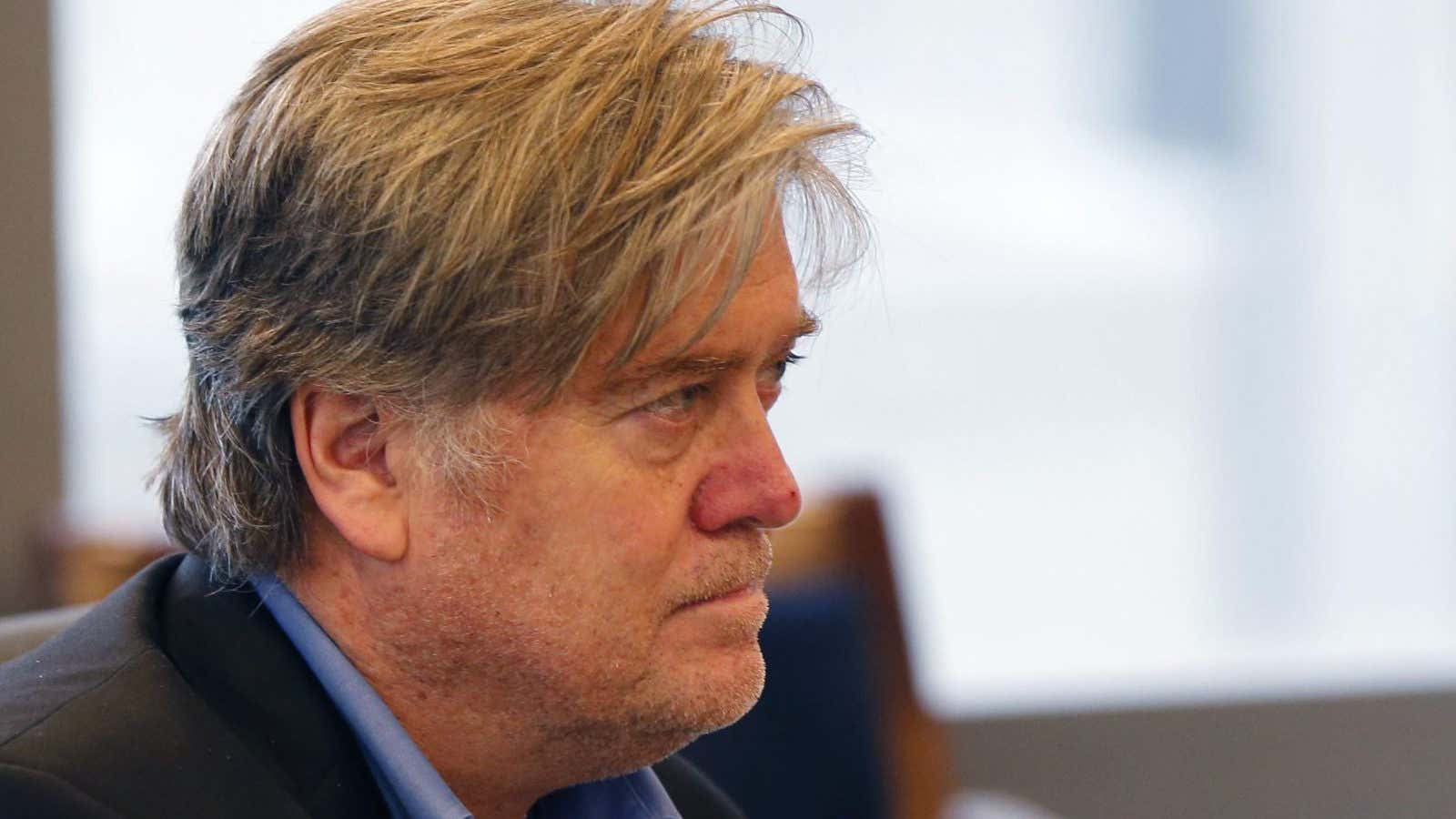In a Jan. 28 order, US president Donald Trump appointed his senior political strategist Stephen Bannon to full membership on the National Security Council’s “Principals Committee,” the senior-most gathering of US security and foreign policy firepower. The same order stripped the director of national intelligence and the chairman of the Joint Chiefs of Staff of such status, relegating them to a seat at the table only on issues involving their direct responsibilities.
In an administration explicitly aiming to tear down what it considers obsolete and inefficient domestic and foreign policy practices going back decades, the elevation of Bannon is unprecedented. No US president before has named a political operative to the Principals Committee, less one lacking any professional or academic experience or credential in security or foreign policy, experts say.
The move was attacked by some of the country’s most prominent national security voices. The main objection is that Trump is giving the appearance of a politicization of the foreign policy advice he receives. But the move also resembles practices in non-democratic states such as the defunct Soviet Union, which sprinkled Communist Party officials throughout government to enforce political orthodoxy and report back to the Politburo.
The administration is “inching toward something more authoritarian than we’ve seen in the White House,” says political scientist Norman Ornstein, a resident scholar at the American Enterprise Institute think tank.
The Principals Committee will retain at least two powerful mainstream voices—those of secretary of state-designate Rex Tillerson and defense secretary James Mattis. But, with the two NSC ejections, their influence will now be counterweighed by two other Trump heavyweights—Mike Flynn, Trump’s national security adviser and head of the National Security Council, and especially Bannon.
Given his closeness to Trump, Bannon effectively becomes the 800-pound gorilla in what traditionally is an apolitical consideration of the biggest threats and strategic questions facing the US. In all discussions, other committee members will know that Bannon is more influential than any of them, and that he can report any of their remarks to Trump, posing a potential chilling effect on their willingness to speak out. Meanwhile, two officials with arguably the most up-to-date knowledge on any given security issue—the heads of intelligence and the military—won’t be regulars in the room at all. “It is sending a stark signal to everyone else in the room of what the president’s priorities are,” Ornstein said, and thus shaping the discussions that take place.
White House spokesman Sean Spicer defended the decision because Bannon served as an officer in the Navy. “He’s got a tremendous understanding of the world and the geopolitical landscape that we have now,” he said.
